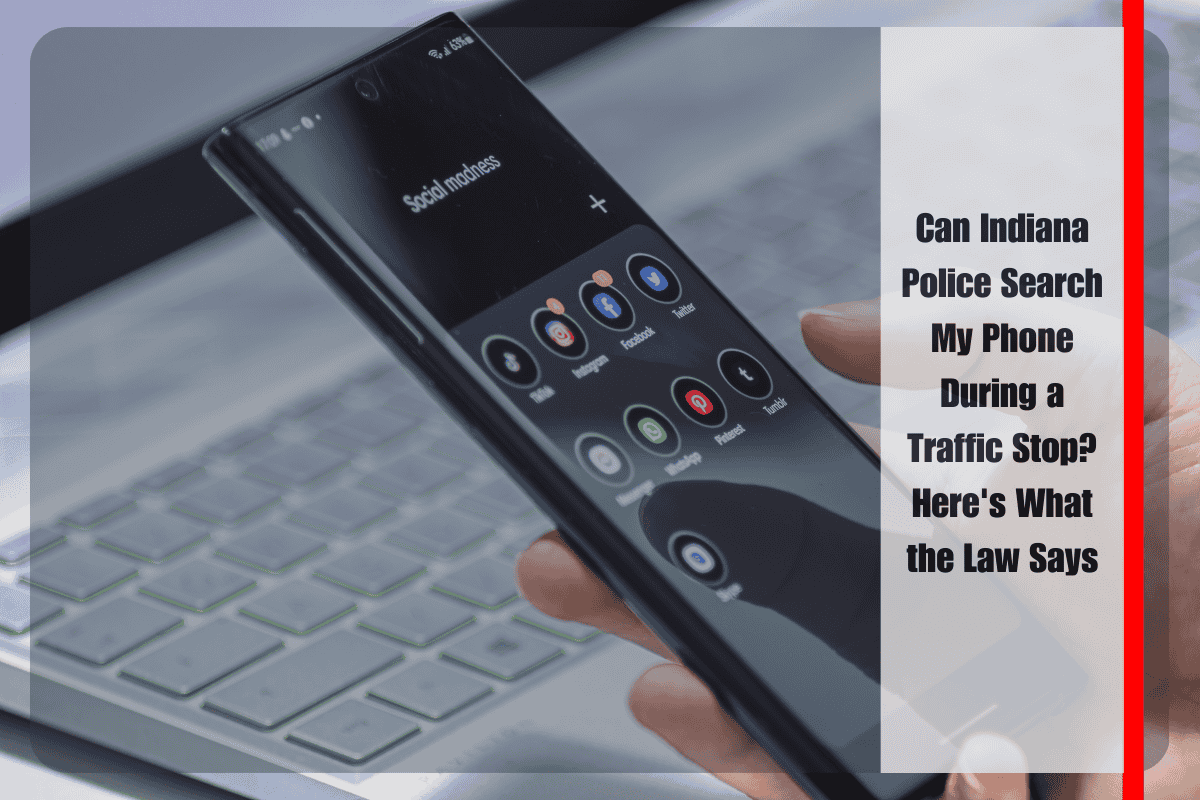Getting pulled over by police in Indiana can be stressful, especially if officers ask to search your phone. Understanding your rights is crucial to protect your privacy and ensure law enforcement follows the law.
General Rule: Warrant Required
Police in Indiana generally cannot search your phone during a traffic stop without a warrant. Both the U.S. and Indiana Constitutions protect you from unreasonable searches and seizures. This means law enforcement must typically obtain a search warrant from a judge, supported by probable cause, before accessing the contents of your phone.
The U.S. Supreme Court’s decision in Riley v. California established that cell phones are protected by the Fourth Amendment, and their contents cannot be searched without a warrant—even after an arrest.
Exceptions to the Warrant Requirement
There are a few exceptions where police might lawfully search your phone without a warrant:
Consent: If you voluntarily give police permission to search your phone, they can do so without a warrant. You have the right to refuse this request, and your refusal cannot be used against you as evidence of guilt.
Exigent Circumstances: If police believe there is an immediate threat—such as evidence on your phone being destroyed or a risk to public safety—they may be able to search your device without a warrant. This is rare and must be justified by the situation.
Incident to Arrest: Even if you are arrested during the stop, police can seize your phone, but they still cannot search its contents without a warrant. They may hold your phone while applying for a warrant.
What Happens if Police Search Your Phone Illegally?
Exclusionary Rule: If police search your phone without a warrant or a valid exception, any evidence they obtain may be inadmissible in court. Indiana courts uphold this principle to protect your rights.
Legal Remedies: If you believe your phone was searched illegally, you can challenge the evidence in court, and a judge may suppress it if your rights were violated.
Your Rights During a Traffic Stop
You are not required to unlock your phone or provide your password unless a court order compels you.
You may refuse consent to any search of your phone or vehicle. Your refusal cannot be used as evidence of guilt.
You must provide your name and address if lawfully stopped, but you do not have to answer further questions or provide access to your phone.
Key Takeaways
Indiana police need a warrant to search your phone during a traffic stop, unless you give consent or an emergency justifies an immediate search.
You have the right to refuse a search and to remain silent beyond identifying yourself.
If your phone is searched without a warrant or valid exception, any evidence may be thrown out in court.
Knowing your rights helps protect your privacy and ensures law enforcement follows proper legal procedures.
Sources:
- https://banksbrower.com/2022/11/11/can-the-police-look-through-my-phone/
- https://www.zosslaw.com/blog/2025/03/when-can-police-search-your-phone/
- https://www.wallacelawfirm.net/blog/2024/01/when-can-the-police-legally-search-your-phone/












